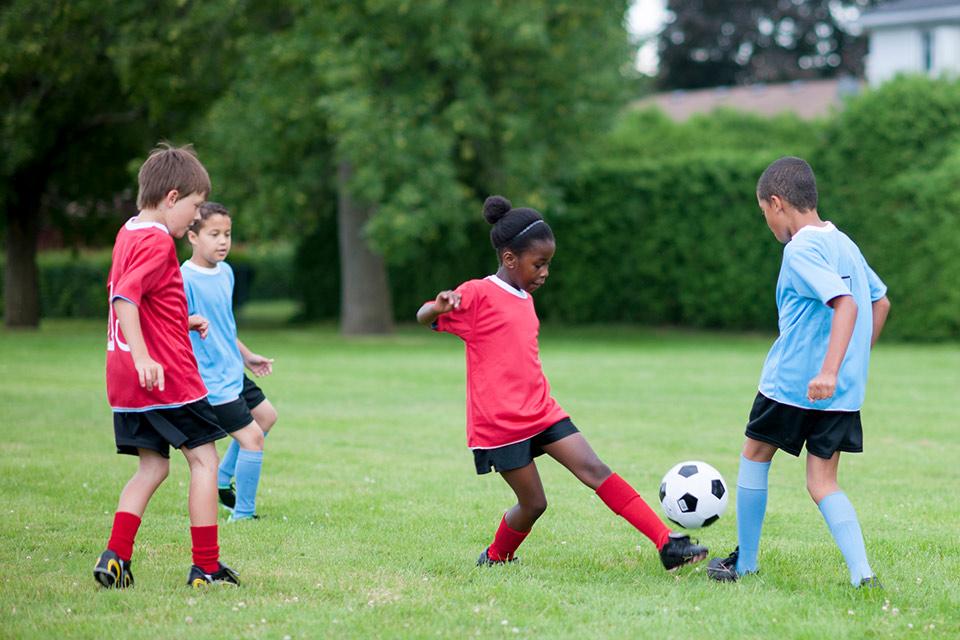Getting involved in sports is a great way for kids to learn about teamwork, exercise and making friends. You will want to help them properly prepare to prevent injury. It is important to make sure your child wears appropriate protective gear for whichever sport they choose. Talk to your child’s coach to make sure your child gets the right training to safely play their sport. Be aware that high-impact, contact sports like football, soccer and hockey raise the risk of concussion and possible brain injury.

Symptoms of a Concussion include:
- Vomiting
- Strong headaches
- Blurred vision
- Numbness or tingling in the arms or legs
- Dizziness and confusion
If your child has any of these head-injury symptoms, take them to a hospital emergency room immediately. Once they have been treated, do not let them go back and play their sport until their doctor says it’s OK.
In active sports, leg injuries are very common, especially to children’s knees. Warm-up exercises and stretches will help prevent some injuries. Twisting or turning too fast and hard or landing the wrong way after a jump can cause a tear in the ACL (anterior cruciate ligament). This ligament is what holds the bone of your child’s lower leg to the bone of their upper leg at the knee joint.
Some Signs of a Torn ACL Injury are:
- Swelling of the knee
- Lots of pain when walking
- Feeling like their leg is wobbly and won’t hold them up
After an exam and x-ray, a doctor can determine if your child’s ACL is torn and how to treat it. Mild cases may put your child on crutches with a cast to immobilize their leg until the tear heals. Severe cases may require surgery to repair the damage.
Make sure your child drinks plenty of water and stays hydrated, especially in temperatures over 80 degrees F. If they are thirsty when they play, they are more likely to get injured. A good rule is to give them a water break every half hour.
Look for These Common Signs of Dehydration or Heat Exhaustion:
- Dry sticky mouth
- Lack of strength
- Dizziness
- Chills
- Headache
- Muscle cramping
- Pale skin
We all know youth sports have their benefits, but participating in too many youth sports can cause injury — this is called overtraining. Overtraining puts children at a higher risk for injury because their bones and muscles are not as strong as an adult’s bones. They can’t handle as much stress to their bodies. It is a parent’s responsibility to not overschedule their child’s activity.
Here are a few easy ways to keep them active and injury free:
- If your child wants to play sports year round, make sure they play a different sport each season. This prevents the same muscles and bones from being overused.
- Talk to your child’s coach. Besides proper playing technique, your coach will know what stretching and training exercises your child needs to keep strong and to help prevent injury.
- Eating good healthy food is important. Our children need vitamins, minerals and nutrients to stay healthy and grow strong. There are many online charts that will let you know what foods they need to eat and which foods they should avoid.
